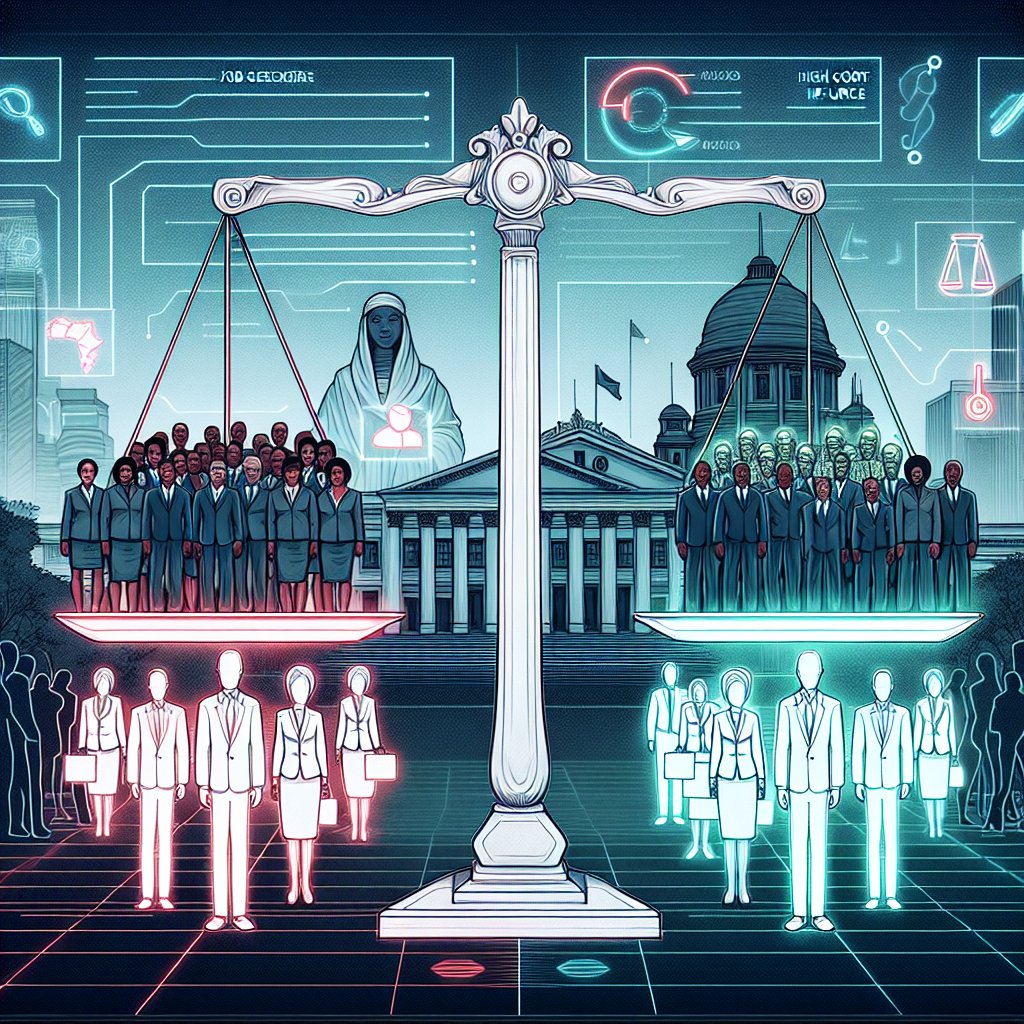Image created by AI
Cadre Deployment: Court Ruling Fuels Continued Political Strife in South Africa
In South Africa, a recent ruling by the Gauteng Division of the High Court in Pretoria has ignited a tumultuous discourse on the practice of cadre deployment within governmental appointment processes. This contentious system allows political party preferences to sway the recruitment for senior positions in public administration. The court's verdict reaffirms the African National Congress (ANC)'s entitlement to affect governance decisions, provided a clear boundary between governmental authority and party interests remains intact. The verdict serves as a setback to the Democratic Alliance (DA)'s hopes of decreeing the ANC’s cadre deployment policy unconstitutional.
The latest court decision does not equate government influence to overt political meddling, much to the disappointment of the DA who are preparing to appeal. Citing Chief Justice Raymond Zondo's assertion that the ANC's cadre deployment strategy contradicts the constitution, the DA persists in its attempt to disband the ANC’s deployment committee.
Scrutiny of cadre deployment resonates across the political spectrum with varied stances. Certain South African citizens regard cadre deployment as a legitimate expression of a political victory—the reward of influencing government personnel decisions after winning an election. Conversely, opponents, including governance expert Sandile Swana, draw parallels between cadre deployment and the segregatory job reservation policies of apartheid, condemning the practice for marginalizing qualified individuals on the basis of political allegiance.
Yet, the phenomenon of political parties steering government appointments isn't exclusive to the ANC. The DA itself has faced allegations of influencing appointments in the Western Cape government, raising questions of consistency in their criticism of the ANC.
Dr. Seleen Naidoo from Public Ethos Consulting presents an international perspective, highlighting that governments worldwide indulge in some form of political appointments. Examples within South Africa include non-ANC individuals receiving notable appointments, suggesting that meritocracy prevails in certain instances.
The divisive sentiment toward cadre deployment hints at the heart of democratic governance and the fair access to public sector jobs. With the partial success of the DA's request for the ANC's deployment committee records, new information could potentially harm the image and integrity of the ruling party.
Public access to these records exposes the extent and specifics of cadre engagement practices, prompting concerns over the transparency and fairness in governmental leadership selections. This scrutiny comes at a particularly sensitive time for President Cyril Ramaphosa, who might face criticism for his role during an era of heightened state capture if implicated in facilitating questionable appointments.
The disclosure also sets a new standard moving forward, compelling both ANC and DA to confront demands for similar transparency. As parties brace for a future where their internal appointment mechanisms are expected to be public, South African politics veers towards an inevitable transparency in the cadre deployment practice, potentially altering its course and the way parties navigate political appointments.
Ultimately, this robust examination of cadre deployment underscores South Africa’s ongoing quest to balance political influence with equitable governance—a debate that remains at the forefront of the nation’s political scene, with voters eagerly observing and potentially being swayed by unfolding events.










